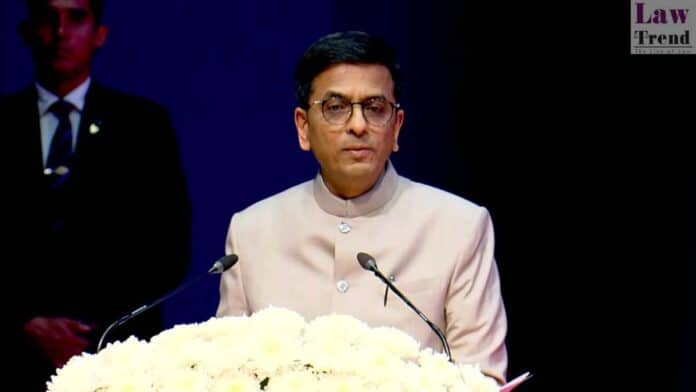Chief Justice of India D.Y. Chandrachud emphasized the core values of justice and equality as the foundational principles of the judiciary during the laying of the foundation stones for three new court complexes in Delhi. The event marked a significant step in enhancing the judicial infrastructure to better serve the citizens.
Addressing the gathering, CJI Chandrachud remarked, “A courthouse is not merely built of bricks and stones, but on the hopes and aspirations of the people. Courts are designed to give people a sense of governance by laws, not by arbitrary decisions.” He highlighted the role of courts in ensuring a comprehensive and inclusive system that caters to the security of lawyers, judges, and litigants, making them aware of their responsibilities and duties towards society.
Reflecting on the judicial expansions, CJI Chandrachud pointed out that since the establishment of the Karkardooma Court in 1993, there has been significant progress in expanding and adding new court complexes. “These new complexes will increase the capacity of our courts and reduce dependencies,” he added.
The CJI further explained that courts are platforms for rigorous debates on legal principles, where judges meticulously deliberate and base their impartial judgments on the strength of arguments, ensuring thorough and balanced scrutiny.
On the symbolism of laying foundation stones, he drew a parallel with the fundamental values of the Indian legal and constitutional systems. “Just as a building needs bricks for its foundation, our courts stand on the pillars of justice, freedom, equality, and fraternity,” stated CJI Chandrachud.
During the ceremony, foundation stones were laid in Shastri Park and Rohini Sector 26, marking these locations as future centers of legal activities and justice delivery in the city. CJI Chandrachud expressed hope that these projects would be completed on schedule, providing essential facilities to all litigants and reinforcing their rights and interests.
Also Read
He also reiterated his concern about the perilous trend of viewing courts as temples and judges as deities, which he had previously criticized as a dangerous mindset. “This analogy is hazardous as it starts positioning us as deities in temples, which is not appropriate,” he concluded.




